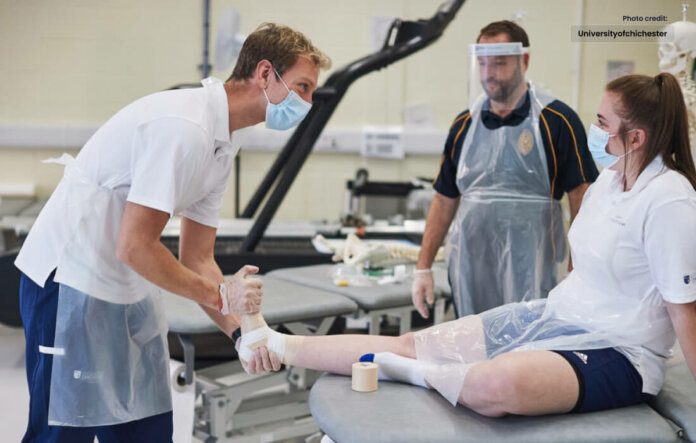Physiotherapy, often referred to as physical therapy, is a healthcare profession that revolves around helping individuals regain and maintain their physical abilities and overall well-being. It’s a field where compassionate individuals can make a significant impact on people’s lives. If you’re considering a career in physiotherapy or simply curious about what it entails, you’ve come to the right place. In this blog, we’ll explore the world of physiotherapy courses, from their benefits to career prospects and everything in between.
The Benefits of Pursuing a Physiotherapy Course
A Growing Demand for Professionals:
The healthcare industry is constantly evolving, and the demand for physiotherapists is on the rise. As the global population ages, more people require rehabilitation and physical therapy services.
Job Satisfaction:
If you’re passionate about helping others, physiotherapy offers immense job satisfaction. Witnessing patients’ progress and knowing that you played a pivotal role in their recovery is incredibly rewarding.
Diverse Specialization Opportunities:
Physiotherapy is a versatile field with numerous specialization options, including sports, pediatrics, orthopedics, neurology, and more. You can tailor your career to match your interests.
Strong Job Stability:
With the growing demand for physiotherapists, job stability is high. You’re likely to find employment opportunities in various settings, such as hospitals, clinics, schools, and sports organizations.
Financial Reward:
A career in physiotherapy can be financially rewarding, with competitive salaries and potential for advancement, especially as you gain experience and expertise.
The Journey of a Physiotherapy Course
Pursuing a career in physiotherapy typically starts with obtaining a relevant degree. The path generally involves the following steps:
Bachelor’s Degree:
The first step is completing a Bachelor’s degree in physiotherapy or a related field. This typically takes three to four years. During this phase, you’ll gain a strong foundation in anatomy, physiology, and the principles of physiotherapy.
Clinical Internships:
Practical experience is a crucial aspect of your education. You’ll spend time in clinical settings, working with patients under the guidance of experienced physiotherapists. This hands-on experience is invaluable for developing your skills.
Master’s or Doctoral Programs (Optional):
Some students choose to pursue a Master’s or Doctoral degree to specialize further or to increase their career prospects. These programs delve deeper into specific areas of physiotherapy.
Licensing and Certification:
After completing your education, you’ll need to obtain the necessary licenses and certifications to practice as a physiotherapist in your region. Requirements vary by location.
Career Prospects in Physiotherapy
As a qualified physiotherapist, you’ll have a wide range of career options:
Clinical Practice: Work directly with patients, helping them recover from injuries, surgeries, or medical conditions. You can specialize in areas like sports medicine, orthopedics, or neurology.
Rehabilitation Centers: Assist individuals with disabilities or chronic conditions in regaining their independence and improving their quality of life.
Sports Teams: Become a sports physiotherapist, working with athletes to prevent and treat injuries, and enhance performance.
Education and Research: Share your knowledge by teaching future physiotherapists or conducting research to advance the field.
Entrepreneurship: Start your own physiotherapy clinic or wellness center, offering specialized services to your community.
Conclusion
Embarking on a physiotherapy course is a rewarding journey that can lead to a fulfilling career. The demand for physiotherapists is on the rise, and the field offers various specialization options and opportunities for growth. Whether you’re passionate about helping individuals recover from injuries or you’re interested in promoting overall well-being, a physiotherapy course is a stepping stone towards making a positive impact on people’s lives and securing a stable and rewarding career in healthcare.




